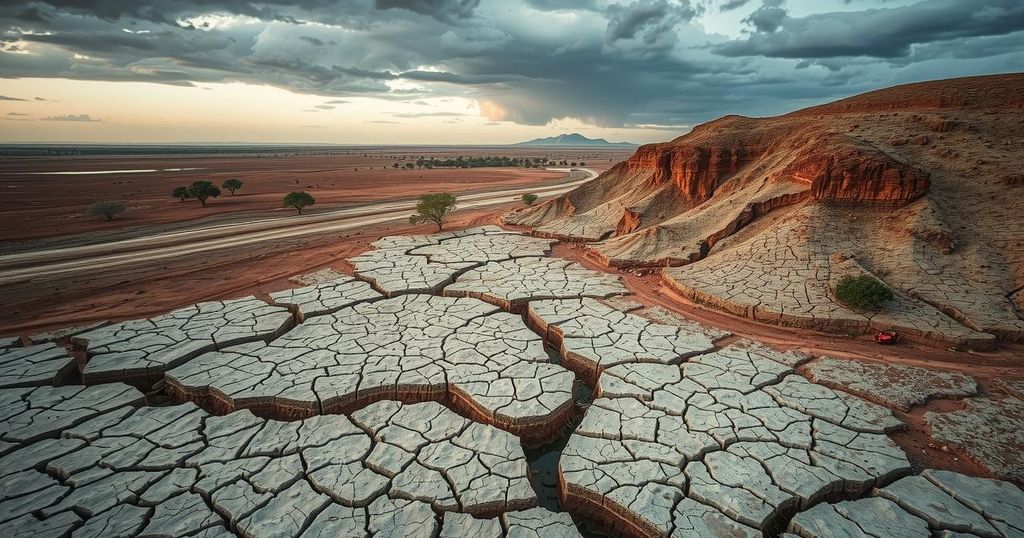Kenya is experiencing its worst drought in 40 years, with millions affected by severe water and food shortages. The nation calls for greater financial aid from developed countries during COP29 to combat these challenges. The “Baku Climate Unity Pact” reflects a global commitment to assist vulnerable nations, yet the transformation of promises into action remains crucial.
Kenya is currently grappling with an unprecedented drought, acknowledged as the most severe in four decades, impacting millions of lives due to acute shortages of water and food. The once predictable seasonal rainfall patterns have shifted, leading to increasingly extreme weather phenomena. Communities, especially in arid and semi-arid areas, rely heavily on agriculture and livestock for survival, making them vulnerable to these climatic changes.
The United Nations has reported that a staggering number of Kenyans are facing the worst water crisis in 40 years, with many lacking reliable access to safe drinking water. This has forced women and children in northern regions to trek larger distances daily to retrieve contaminated water, exacerbating health risks associated with waterborne diseases.
At the recent COP29 conference in Baku, Azerbaijan, Kenya emphasized the necessity for enhanced financial support from developed nations to address these pressing challenges. One notable outcome of this conference was the “Baku Climate Unity Pact,” which introduced new financial goals aimed at assisting vulnerable countries and a strategic plan for global climate adaptation. This pact seeks to fortify the resilience of nations adversely affected by climate change, particularly those with minimal industrial activity and consequently restrained greenhouse gas emissions.
Despite the pledges made at COP29 demonstrating global resolve to aid the most vulnerable countries, the enduring challenge remains in translating these commitments into tangible actions that will effectively alleviate the impacts of drought and climate change in Kenya and analogous regions.
It is imperative that urgent measures are adopted to translate these discussions into actionable programs that will safeguard the livelihoods of those significantly impacted by prolonged periods of drought. Only through cooperative engagement and sustained financial support can the dire circumstances faced by many in Kenya be mitigated effectively.
Drought is a recurring challenge in Kenya, previously following a predictable seasonal pattern. However, over recent years, this pattern has shifted dramatically due to climate change, leading to more frequent and intense droughts. With the dependence of local populations on agriculture and livestock, the impacts of such climatic changes have dire implications for food security and access to water. The severity of the situation has prompted calls for international assistance, particularly in light of recent climate dialogues aimed at fostering global support for vulnerable nations.
In summary, Kenya is facing its most significant drought crisis in 40 years, amplified by climate change impacts, which have dramatically altered traditional weather patterns. The situation necessitates urgent international assistance and concrete actions to support those affected. As global dialogues continue, the effectiveness of these initiatives will depend on the commitment of developed nations to transform pledges into actionable support, thereby alleviating the suffering of millions in Kenya and beyond.
Original Source: www.aljazeera.com






